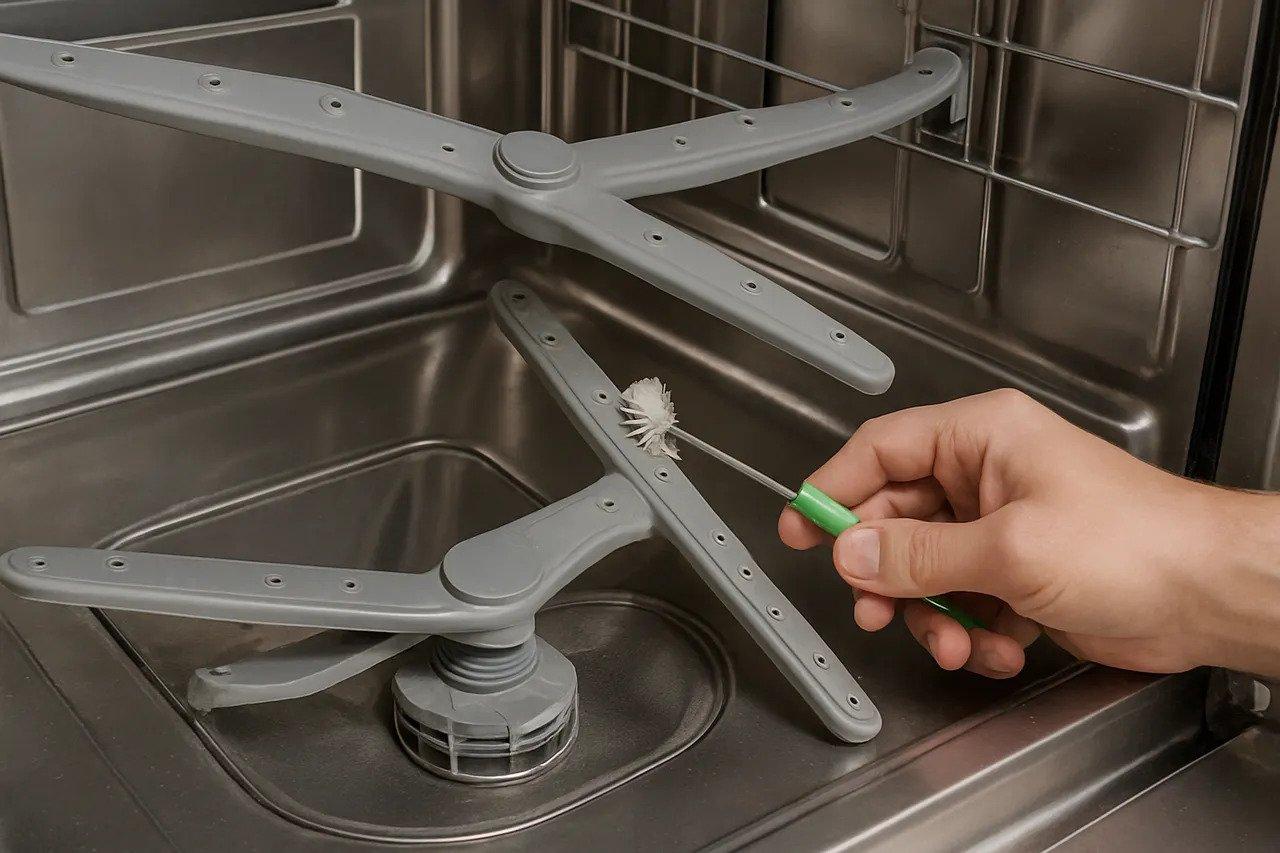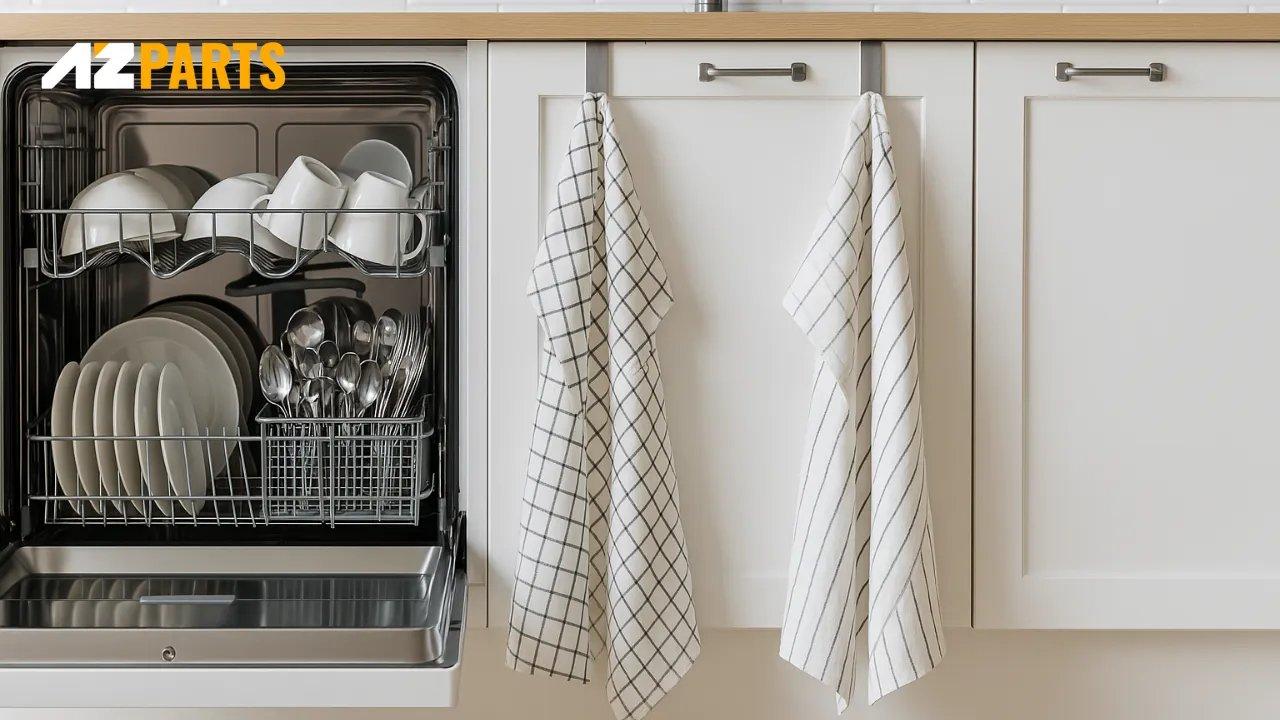How-To Guides
How to Replace a Dishwasher Water Inlet Valve (Step-by-Step Guide)
AZparts Team
Updated on August 1, 2025
7 min read
When your dishwasher fails to fill with water properly, the culprit is often a faulty water inlet valve. Replacing a dishwasher water inlet valve might seem daunting, but with the right guidance and quality replacement parts from AZParts, you can restore your dishwasher's performance efficiently. This comprehensive guide will walk you through the entire process, from identifying the problem to completing the repair safely.
_1752027798.jpg&w=3840&q=75)
1. What Is a Dishwasher Water Inlet Valve?
The dishwasher water inlet valve is a critical component that regulates water flow into your dishwasher during wash and rinse cycles. Located typically at the bottom front of the unit, this electrically-controlled valve opens when the dishwasher control board sends a signal, allowing water to enter the tub. The valve contains a solenoid mechanism that responds to electrical signals, opening and closing as needed throughout the wash cycle.
Modern inlet valves are designed with built-in screens to filter debris and prevent clogs from entering the dishwasher system. These valves operate under normal household water pressure, typically between 20-120 PSI, and are engineered to provide precise water flow control. When functioning properly, the inlet valve ensures your dishwasher receives the correct amount of water for each cycle, maintaining optimal cleaning performance.
What Is a Dishwasher Water Inlet Valve?
2. Signs You Need to Replace the Water Inlet Valve
Several symptoms indicate that your dishwasher's water inlet valve requires replacement. The most obvious sign is when your dishwasher doesn't fill with water at all, leaving dishes dirty after a complete cycle. You might notice the dishwasher starting its cycle but remaining empty, or it may fill very slowly, extending cycle times significantly.
Strange noises during the fill cycle can also signal valve problems. A humming or buzzing sound that continues throughout the wash cycle often indicates the valve is trying to open but cannot function properly. Additionally, if your dishwasher overfills or continues filling even when it should stop, the valve's internal mechanism may be stuck in the open position.
Signs You Need to Replace the Water Inlet Valve (Source: AZParts)
Water leaking from the bottom front of your dishwasher, particularly near the access panel, might indicate inlet valve seal failure. Mineral deposits and debris can cause internal components to deteriorate, leading to poor sealing and water leakage. If you notice any combination of these symptoms, it's time to consider replacing the water inlet valve to restore proper dishwasher operation.
3. Tools & Parts You Will Need
Before beginning the replacement process, gather all necessary dishwasher inside parts and tools to ensure a smooth repair experience. You'll need basic hand tools including a screwdriver set with both Phillips and flathead options, adjustable pliers for hose connections, and a flashlight or headlamp for better visibility in tight spaces.
Safety equipment is essential for this repair. Have towels ready to absorb any water spillage, and consider wearing safety glasses when working in confined spaces. A bucket or shallow pan will help catch any residual water when disconnecting hoses.
Tools & Parts You Will Need (Source: AZParts)
For the replacement part, ensure you have the correct water inlet valve for your specific dishwasher model. AZParts offers a comprehensive selection of high-quality inlet valves compatible with major dishwasher brands. Check your dishwasher serial number and cross-reference it with the valve specifications to ensure proper fit and function. Having the manufacturer's installation instructions can also provide model-specific guidance during the replacement process.
4. Step-by-Step Instructions: Replacing a Dishwasher Water Inlet Valve
Step 1: Turn Off Water and Power
- Turn off circuit breaker or unplug dishwasher from outlet
- Locate water shut-off valve under kitchen sink and turn clockwise
- Run short cycle to drain remaining water from system
- Test connections with voltage tester for hardwired units
Turn Off Water and Power (Source: AZParts)
Step 2: Access the Inlet Valve
- Remove screws from front access panel at bottom of unit
- Pull panel away from dishwasher frame (some models use clips)
- Locate inlet valve among visible components
- Take photo of connections for reference during installation
Step 3: Locate the Inlet Valve
- Find rectangular/cylindrical component with water hoses and electrical wiring
- Trace water supply line from entry point to first component
- Note valve orientation and mounting position carefully
- Identify solenoid mechanism and electrical connections
Locate the Inlet Valve (Source: AZParts)
Step 4: Disconnect the Water Supply Hose
- Use adjustable pliers to loosen hose connection at valve
- Keep towels ready to absorb water spillage
- Turn fitting counterclockwise without over-tightening pliers
- Inspect and replace worn washers or seals
Step 5: Remove the Electrical Connectors
- Pull apart plug-type connectors or loosen screw terminals
- Label wires with masking tape for correct reconnection
- Handle connections gently to avoid wire damage
- Check for corrosion or burning on connections
Step 6: Remove the Old Inlet Valve
- Remove mounting screws or clips securing valve to frame
- Disconnect any additional internal hose connections
- Lift valve out carefully, noting orientation
- Clean mounting area of debris and corrosion
Remove the Old Inlet Valve (Source: AZParts)
Step 7: Install the New Inlet Valve
- Position new valve in exact same orientation as old one
- Secure with original mounting screws (snug, not over-tight)
- Install new gaskets or seals per manufacturer instructions
- Verify valve is securely mounted and properly oriented
Step 8: Reconnect the Water Supply Hose
- Reconnect hose to new inlet valve with proper seal
- Inspect hose for wear or damage before reuse
- Tighten connection securely without excessive force
- Double-check all water connections are properly secured
Reconnect the Water Supply Hose (Source: AZParts)
Step 9: Restore Power and Test the Dishwasher
- Reconnect electrical wires to correct terminals
- Turn water supply back on and check for leaks
- Restore power to dishwasher once leak-free
- Run test cycle to verify proper valve operation
>> Learn more: My Dishwasher Not Cleaning Dishes? Here’s How to Fix it
5. How Much Does a Water Inlet Valve Cost?
The cost of replacing a dishwasher water inlet valve varies depending on your dishwasher brand, model, and whether you choose to do the work yourself or hire a professional. Replacement inlet valves typically range from $15 to $80 for the part alone, with premium or specialized valves costing more.
High quality inlet valve parts from AZParts (Source: AZParts)
If you're looking for reliable replacement parts, AZParts offers competitively priced dishwasher inlet valves for most major dishwasher brands. Professional installation can add $100 to $200 to the total cost, making DIY replacement an attractive option for handy homeowners.
Consider the age and overall condition of your dishwasher when deciding whether to replace the valve. If your appliance is relatively new and in good condition otherwise, replacing the inlet valve is usually a cost-effective repair that can extend your dishwasher's life significantly.
6. Frequently Asked Questions (FAQ)
6.1. Can I replace the inlet valve myself?
Yes, most homeowners with basic DIY skills can replace a dishwasher water inlet valve. The process requires common hand tools and careful attention to safety procedures, particularly when working with water and electrical connections. Following manufacturer instructions and taking proper safety precautions makes this a manageable home repair project.
6.2. Why is my dishwasher not filling with water?
A dishwasher that won't fill with water typically has a faulty inlet valve, clogged water supply line, or electrical control issues. The inlet valve is the most common culprit, especially if you hear humming or buzzing sounds during the fill cycle. Other possibilities include low water pressure or problems with the dishwasher's control board.
6.3. Can a clogged valve be cleaned instead of replaced?
While inlet valve screens can sometimes be cleaned, internal solenoid failure or seal deterioration requires complete valve replacement. Attempting to repair internal valve components is usually not cost-effective and may lead to recurring problems. Replacement with a quality part from AZParts ensures reliable, long-term performance.
Replacing a dishwasher water inlet valve is a straightforward repair that can restore your appliance's functionality and save you from costly professional service calls. By following these detailed steps and using quality replacement parts, you can confidently tackle this repair project and get your dishwasher back to peak performance.
For reliable inlet valves and other dishwasher parts, trust AZParts to provide the quality components you need. Visit AZParts today to find the perfect replacement valve for your dishwasher model.
Contact Information:
- 8 The Green, Ste A, Dover, Delaware 19901-3618, United States
- support@azparts.com
Dishwasher
Further Reading
Further Reading



_1748246700.jpg&w=3840&q=75)

